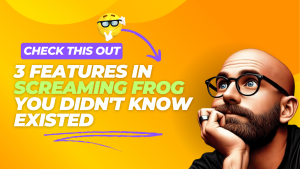One of the things I get asked about most often is to explain entities and how they differ from keywords. In today’s note, we will cover those topics as well as the role entities play in SEO and how you can leverage them for better search visibility.
There is a lot to cover, so let’s dive in.
Entities help search engines like Google go beyond simple keyword matching to grasp the context and intent behind queries, resulting in more accurate and relevant search results. By focusing on entities—through strategies like implementing structured data, building topical authority, and leveraging related entities—you can enhance your content’s performance, boost its presence in Knowledge Panels, and improve rankings in search results.
Integrating entity-based SEO into your strategy is no longer optional; it’s essential for staying competitive in the evolving world of semantic search.
What are Entities in SEO?
In SEO, an entity refers to a uniquely identifiable thing or concept, such as a person, place, object, event, or idea. Unlike keywords, which are simply words or phrases used to match search queries, entities represent more than just text—they encapsulate real-world objects and their relationships. For example, the Eiffel Tower is an entity that exists as a specific, recognizable structure, which is different from the keyword “Eiffel Tower” that could appear in various contexts.
Search engines like Google use entities to better understand the meaning behind content and queries. Through the Google Knowledge Graph, entities are mapped and connected to other related entities, helping search engines accurately interpret context. For instance, the entity “Eiffel Tower” is associated with related entities such as “Paris,” “France,” “landmark,” and “tourism,” creating a web of relationships that enables Google to deliver more relevant search results.
The best example I have ever heard in explaining entities was an example used by Dixon Jones.
If Google encountered a page that mentioned Freddie Mercury, Brian May, Bohemian Rhapsody, Another One Bites the Dust, and Radio Ga-Ga, it would know that this page was about the band Queen. In addition to that if the term Queen was used on this page, it would know it was in reference to the band and not the Queen of England.
The search engine understands this from all the other times it has encountered these entities together on other pages across the web.
This shift toward entity-based understanding is a key component of semantic search, where the focus is not just on keywords but on how concepts and ideas are linked. By identifying entities within content, search engines can better grasp what a page is about and connect it to the broader context of a user’s query, ultimately improving the accuracy of search results.
Entities vs. Keywords: What’s the Difference?
The primary difference between entities and keywords lies in their scope and function within search engine optimization. Keywords are the individual words or phrases that users type into a search engine, traditionally used to match the search query with relevant content. For many years, SEO strategies revolved around targeting specific keywords to rank higher in search results.
However, entities represent a more sophisticated approach to understanding information. An entity is a uniquely identifiable thing or concept, such as a person, place, or object, that transcends language and keyword variations. Entities allow search engines like Google to interpret the meaning behind words and their relationships to other concepts, moving beyond simple keyword matching to grasp the context and intent behind a query.
For instance, if someone searches for “Apple,” the keyword alone could refer to either the technology company or the fruit. However, Google uses entities to differentiate between the company “Apple Inc.” and the fruit “apple” by understanding the context around the search. This is where entities outperform keywords—they enable search engines to disambiguate terms and provide results that are more relevant to the user’s intent.
Entities also have the advantage of being language-agnostic. While keywords rely on specific language and variations, entities can be recognized regardless of how they are written or spoken. Whether “Eiffel Tower” is mentioned in English, French, or another language, Google recognizes it as the same entity, enabling it to provide relevant information across different languages and formats.
In essence, the shift from keyword-centric SEO to entity-based SEO marks a transition from focusing on matching words to understanding the meaning and relationships between concepts. This evolution helps search engines deliver more precise and contextually relevant results, benefiting both users and content creators who adapt to entity optimization strategies.
Why Entities Matter for SEO
Entities have become essential for SEO because they allow search engines like Google to better understand user intent and provide more accurate, relevant search results. By focusing on entities instead of just keywords, search engines can interpret the meaning behind a query, making it possible to deliver contextually appropriate content.
One of the key benefits of entities in SEO is improved relevance. Search engines use entities to disambiguate similar terms, ensuring that users receive results aligned with their search intent. For instance, a search for “jaguar” could refer to the animal, the car brand, or a sports team. By recognizing “jaguar” as different entities based on context, Google can present more accurate results.
Another significant advantage of entities is their role in the Google Knowledge Graph. The Knowledge Graph organizes and connects entities, mapping out their relationships to each other. When search engines understand how entities are related, they can enhance search features such as Knowledge Panels, featured snippets, and other rich results. For example, a search for “Albert Einstein” not only returns information about the physicist, but also displays related entities like “Theory of Relativity” and “Nobel Prize,” all of which are interconnected in the Knowledge Graph.
The rise of semantic search is another reason entities are important for SEO. Traditionally, search engines relied on lexical-based search, focusing on matching keywords directly. With semantic search, engines like Google now consider the broader context, understanding the relationships between entities and concepts. This shift allows for a deeper comprehension of user intent, enabling search engines to deliver more meaningful and context-aware results.
Incorporating entity-based strategies in your SEO efforts can lead to enhanced visibility, better rankings, and a stronger presence in search results, especially in features like rich snippets and Knowledge Panels. By optimizing for entities, you help search engines understand the relevance and authority of your content, ultimately improving your chances of reaching your target audience more effectively.
How to Optimize for Entities in SEO
Optimizing for entities requires a shift in strategy from traditional keyword targeting to focusing on how entities are identified and understood by search engines. By enhancing your content to highlight key entities and their relationships, you can improve its relevance and visibility in search results.
Entity-based SEO is a conversation well beyond today’s note, but here are some simple tactics to keep in mind when optimizing for entities:
1. Implement Structured Data
Structured data is crucial for helping search engines recognize and understand the entities within your content. By using schema markup, you provide explicit clues about the meaning of your content, enabling search engines to interpret it more accurately. For example, marking up your content with schema types like “Person,” “Product,” or “Organization” allows Google to easily identify entities and their attributes. Structured data is also essential for triggering rich results, such as Knowledge Panels and featured snippets.
2. Build Topical Authority
To optimize for entities, focus on building content clusters around core entities and related subtopics. By covering a subject comprehensively, you establish your site as an authoritative source on that entity. For instance, if you’re writing about “SEO,” create multiple pieces of content that explore related entities like “semantic search,” “Google Knowledge Graph,” and “structured data.” This approach helps search engines understand that your site provides in-depth coverage of the entity, increasing your chances of ranking higher for entity-based queries.
3. Leverage Related Entities
Entities do not exist in isolation—they are connected to other entities within the Knowledge Graph. To strengthen your content, mention and link to related entities where appropriate. For example, if you’re writing about the entity “Albert Einstein,” referencing related entities like “Theory of Relativity,” “Physics,” and “Nobel Prize” adds depth to your content. These connections make it easier for search engines to map your content within the broader web of related concepts, improving its relevance.
4. Use Internal Linking
Internal linking is a powerful way to create a semantic network of entity-related content within your site. When you link to relevant articles that focus on related entities, you reinforce the connections between concepts and help search engines understand the relationships within your content. For example, if you have multiple pages about SEO topics, linking them together strengthens the entity associations across your site, signaling topical relevance to search engines.
Real-World Examples of Entity Optimization
Optimizing for entities in SEO can significantly boost your site’s visibility and relevance by helping search engines understand the content more clearly. Here are some real-world examples of how entity optimization has been successfully implemented to enhance search performance.
1. Wikipedia Pages
Wikipedia is one of the best examples of well-optimized content that uses entities. Every Wikipedia article is essentially an entry about a specific entity—whether it’s a person, place, event, or concept. The articles are structured to provide comprehensive information about the entity, and they use internal and external linking to establish relationships between related entities.
For example, the Wikipedia page for the Eiffel Tower includes:
- Structured data (such as the coordinates, height, and year of construction).
- Links to related entities like Paris, Gustave Eiffel, and Tourism in France.
- Citations from authoritative external sources that validate the information.
This type of structured content enables search engines to easily identify the entity and display it in Knowledge Panels and other rich search features.
2. Knowledge Panels
A Knowledge Panel is a rich result that appears in Google search results, typically on the right side of the screen, when a user searches for a well-known entity. These panels provide a snapshot of information about the entity, often drawn from the Google Knowledge Graph, Wikipedia, and other authoritative sources.
For instance, a search for “Albert Einstein” will trigger a Knowledge Panel displaying key facts about Einstein, such as:
- His birth and death dates.
- His famous contributions to physics, like the Theory of Relativity.
- Related entities, such as Princeton University and Nobel Prize.
Knowledge Panels are a direct result of entity optimization. By ensuring that your content is connected to well-known entities and implementing schema markup, you increase your chances of having your business or content featured in these prominent search features.
3. Schema Markup for Local Businesses
Local businesses that use schema markup to define key entities (such as their business name, location, and services) often see improved search performance, particularly in local SEO. By using LocalBusiness schema, businesses help search engines recognize them as distinct entities, which can result in enhanced visibility in local search results and Google Maps.
For example, a restaurant can implement schema markup to specify:
- Business hours.
- Menu items.
- Customer reviews.
- Location and contact information.
This data can then appear in rich results like local packs, which feature prominently in Google searches for local services, increasing the restaurant’s visibility and likelihood of attracting customers.
4. Product Pages in E-commerce
E-commerce sites that use structured data to optimize their product pages for entities often appear in rich snippets with detailed information such as product ratings, pricing, and availability. By implementing Product schema, businesses can ensure that search engines identify their products as distinct entities and display them in enhanced formats that attract more attention from potential buyers.
For example, an online store selling Nike Air Max shoes could use schema markup to provide:
- Product name and brand.
- Price and availability.
- Customer reviews and ratings.
This rich snippet information can appear directly in the search results, providing users with quick access to relevant details and driving more clicks to the site.
5. Content Clusters and Topic Authority
Creating content clusters around key entities helps establish a site as an authoritative source on a specific subject. For instance, a website focused on digital marketing might create multiple articles about entities like SEO, content marketing, and Google Analytics. By linking these articles together and optimizing each for its respective entity, the website builds authority in the digital marketing space.
Search engines recognize the relationships between these entities, which enhances the topical relevance of the content and boosts its ranking potential. This strategy also helps in gaining visibility for related searches, as the site’s entity network becomes a trusted source for specific topics.
6. Featured Snippets
Optimizing content for entities can also help trigger featured snippets, which are short, concise answers that appear at the top of Google search results. By answering user queries directly and providing contextually rich information, entity-optimized content increases its chances of being selected for featured snippets.
For example, a search query like “What is the Theory of Relativity?” might pull content that clearly explains this concept and connects it to the entity “Albert Einstein.” Featured snippets often draw from content that uses structured data and clearly defines the entity in question, increasing the likelihood of securing the top search spot.
Key Takeaways from Entity Optimization Examples
- Wikipedia provides a model for optimizing content with clear, structured information about entities.
- Knowledge Panels and featured snippets are powerful search features driven by entity recognition and schema markup.
- Local businesses and e-commerce sites can boost visibility through schema markup that defines their key entities (e.g., products, services, or locations).
- Building content clusters around entities enhances a site’s authority and relevance in search results.
Conclusion: A Simple Overview of Entities in SEO
Entities play a central role in modern SEO, helping search engines like Google understand content more accurately and deliver relevant search results. By shifting from a keyword-centric approach to one that focuses on entities, you can enhance your content’s visibility and authority across search features like Knowledge Panels, featured snippets, and rich results.
Optimizing for entities involves implementing structured data, building topical authority through content clusters, and leveraging related entities to strengthen your content’s relevance. Whether it’s a local business optimizing for location-based searches or an e-commerce site improving product visibility, entity-based SEO is essential for staying competitive in the evolving world of search.
Start incorporating entity-based strategies into your SEO efforts to improve search relevance, rank higher in SERPs, and make your content more discoverable to users. As search engines continue to prioritize entities over keywords, adopting these techniques will be key to long-term success.



